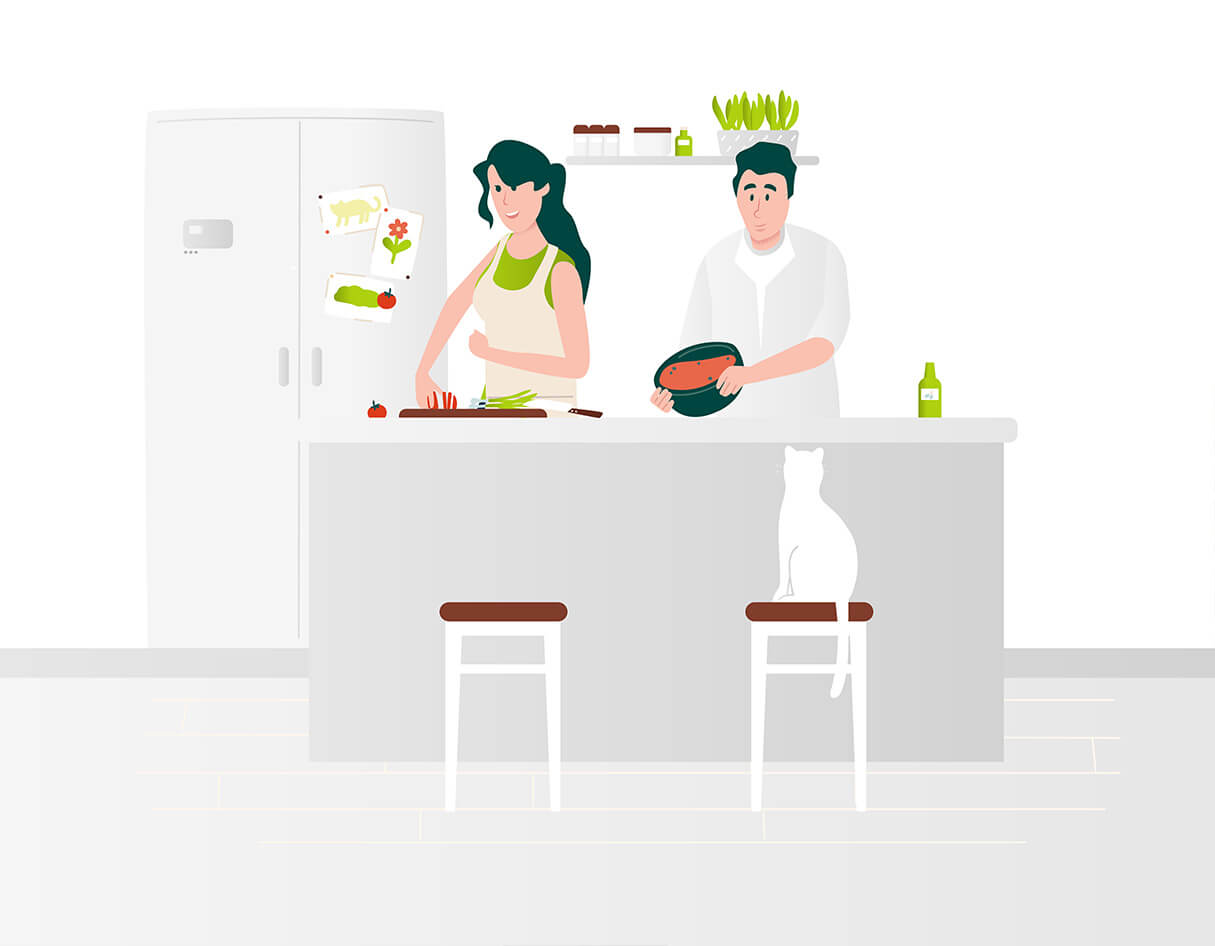Books, podcasts, food apps, expert analyses and guidebooks can be found in this extremely profitable market,making it difficult to keep an overview. Regardless of which method is particularly trendy and which philosophy is currently the most popular, our ten all-time basics of healthy nutrition are recommended by most doctors and nutritionists as well as numerous studies.
1. Natural and varied
Choose natural foods – preferably from regional cultivation and according to the season. Avoid processed foods whenever possible. Make sure that the ingredients are varied.
2. Fruit and vegetables as a basis
Numerous vitamins, minerals and trace elements are absorbed through fruit and vegetables.
3. If grain, then full grain
Cereals are the number 1 energy supplier, but only whole grain products provide proper nutrients keeping you full for a long time.
4. Drink enough
Your body cannot perform without fluid. There are numerous recommendations, but about 1 to 2 liters per day should be enough if you are ill or if you are physically strenuous, even more.
5. Milk and dairy products
These provide important proteins, calcium and vitamins of the B group. If you are on a vegan diet, you should seek advice and ask for vitamin B supplements at the pharmacy.
6. Animal products in moderate quantities
The body absorbs some minerals and trace elements better from animal foods than from plant foods. Reduced consumption of animal products is nevertheless good for your health, especially if the little meat you consume comes from sustainable, organic and regional sources. In this way, you are making a contribution to environmental protection.
7. Low fat
Fat is not bad per se. However, hidden and saturated fats for example found in sausage or in ready mealsare considered problematic. The less you consume the better.
8. Avoid sweets
Sweets taste good, however offer no valuable nutrients. Not only does the sugar contained in them harm in many ways it displaces the absorption of vital nutrients.
9. Eat consciously
Food is not suitable for stress compensation. Instead, eat consciously, take your time and pay attention to what you eat. Eat slowly, because a feeling of fullness usually comes only after a little while. If you eat large quantities very quickly, you will eat much more than necessary – gaining weight is almost inevitable.
10. Stay active
Ideally, what we eat should also be expended. Exercise also helps digestion and supports our cardiovascular system. Sport is a good way to reduce stress and overload. Ultimately, it can help prevent related diseases of poor diet such as diabetes mellitus and obesity.






